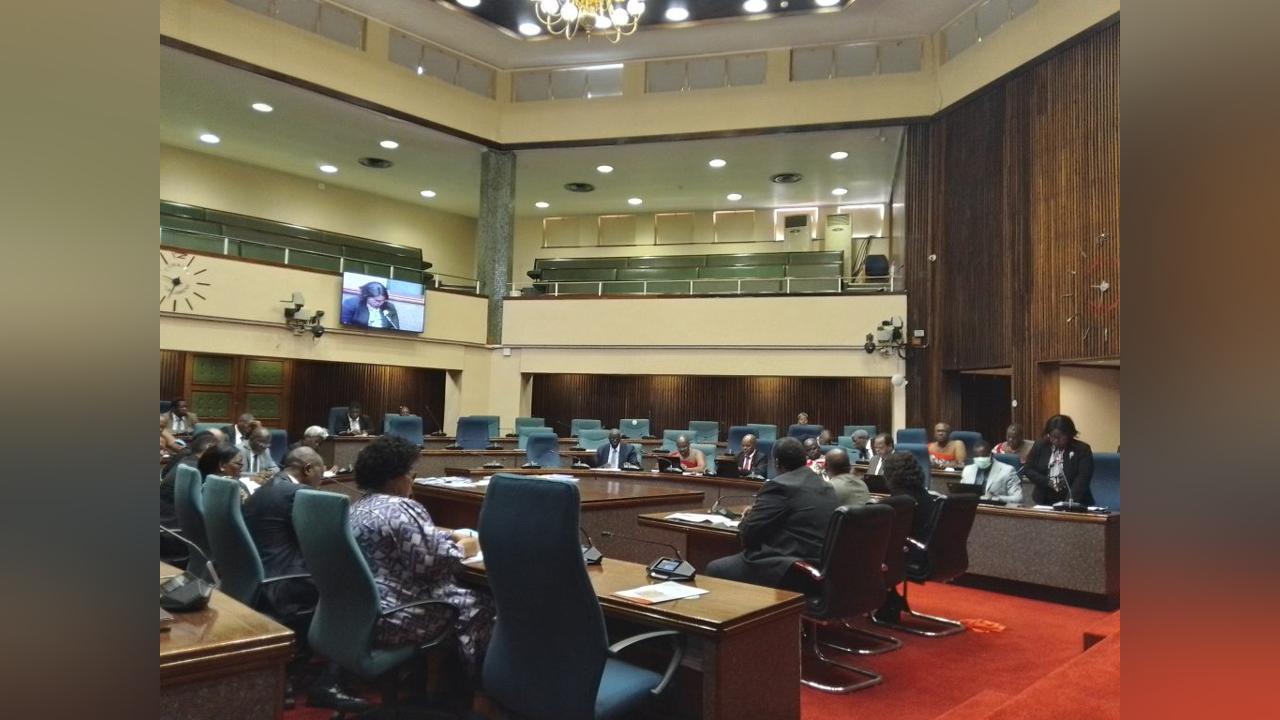Africa-Press – Eswatini. Government has responded to the health crisis by providing injectable drugs, which are the staple of hospital care in the country’s four major hospitals.
Shortages of the injectable drugs can affect patients in emergency rooms, intensive care units, and outpatient surgery departments.
Some of the drugs that have been delivered include diclofenac, paracetamol, antibiotics, antiretroviral (ARVs), cough syrup, insulin, and drugs for asthma, epilepsy, hypertension (one still short), oral rehydration salts (ORS), and intravenous treatment (IV drip), which some patients said they were forced to buy.
Director of Health Services, Dr Velephi Okello, said they had delivered 12 key medication to four regional hospitals which are Mbabane, Pigg’s Peak, Mankayane and Hlatikulu.
Dr Okello said they had not started making deliveries to health centres and clinics because they had not received complaints from there about any drug insufficiency.
“The first batch delivered was for different antiretroviral drugs. We also received fluids (drips) which were delivered before Christmas because there were many accidents around that time. When a person has been injured drips play a vital role,” she said.
finance
She said the ministry was using part of the E50 million it received from the ministry of finance, but she was not in a position to give the exact amount spent as this was a continuous process.
Government, according to Dr Okello, through its emergency proclaiming campaign asked medical drug suppliers who had stock to deliver so that they could rescue the situation.
They also made payment arrangements with the suppliers but said for now, the agreement allowed them to deliver some of the drugs urgently.
“Government will prioritise them when it comes to payments. The drugs are not enough to cover every health facility in the country but are sufficient for the hospitals,” she said.
Dr Okello further stated that the ministry had also received pain medication drugs but the situation had not yet been fully stabilised and they were still looking forward to receiving more medication.
“We cannot relax because we have received fewer drugs so we are still going to place orders so that they can deliver the remaining drugs to us.”
She further stated that they were still in need of the Bupivacain drug in big numbers because some of the hospitals had even suspended theatre operations as they do not have it.
“We need a lot of drugs as we are still in need of the Bupivacaine drug, which is used in the theatre and acts as a pain injection. We can’t operate without it so we sometimes ask patients to buy it first before they can be operated,” she explained.
treating
Dr Okello also stated that some of the drugs that were still not available were those used for treating non-communicable diseases (NCD).
“We are still struggling with some NCDs drugs but some are now available,” she said.
According to Dr Okello they had recently set the guidelines of treating NCDs and in the process had to channel many people into using one drug.
“When everyone is using the same drug, we cannot manage to estimate the exact figures to use when purchasing them. It is not the same as ARVs where we know how many people use the variety of drugs in the country,” she said.
Dr Okello also added that they were beginning to distribute the NCDs drugs to clinics because they were previously only accessible in hospitals.
“We want to improve the distribution so that when people go to the clinic they get enough drugs because in hospitals they are sometimes given less because of the number of patients,” she said.
She reiterated that the challenges in the health sector were not yet back to normal as they had not addressed the situation and were pushing for more drugs to be delivered.
“We need more drugs to be delivered so that our employees can be confident to plan ahead like those working in theatre rooms. If they do not see that the situation is stable, they cannot plan ahead. We need to stabilise the situation so that the flow can be normal,” she added.
She further said they had not reached a point where they could say the situation was normal but they were closing the gaps.
For More News And Analysis About Eswatini Follow Africa-Press







